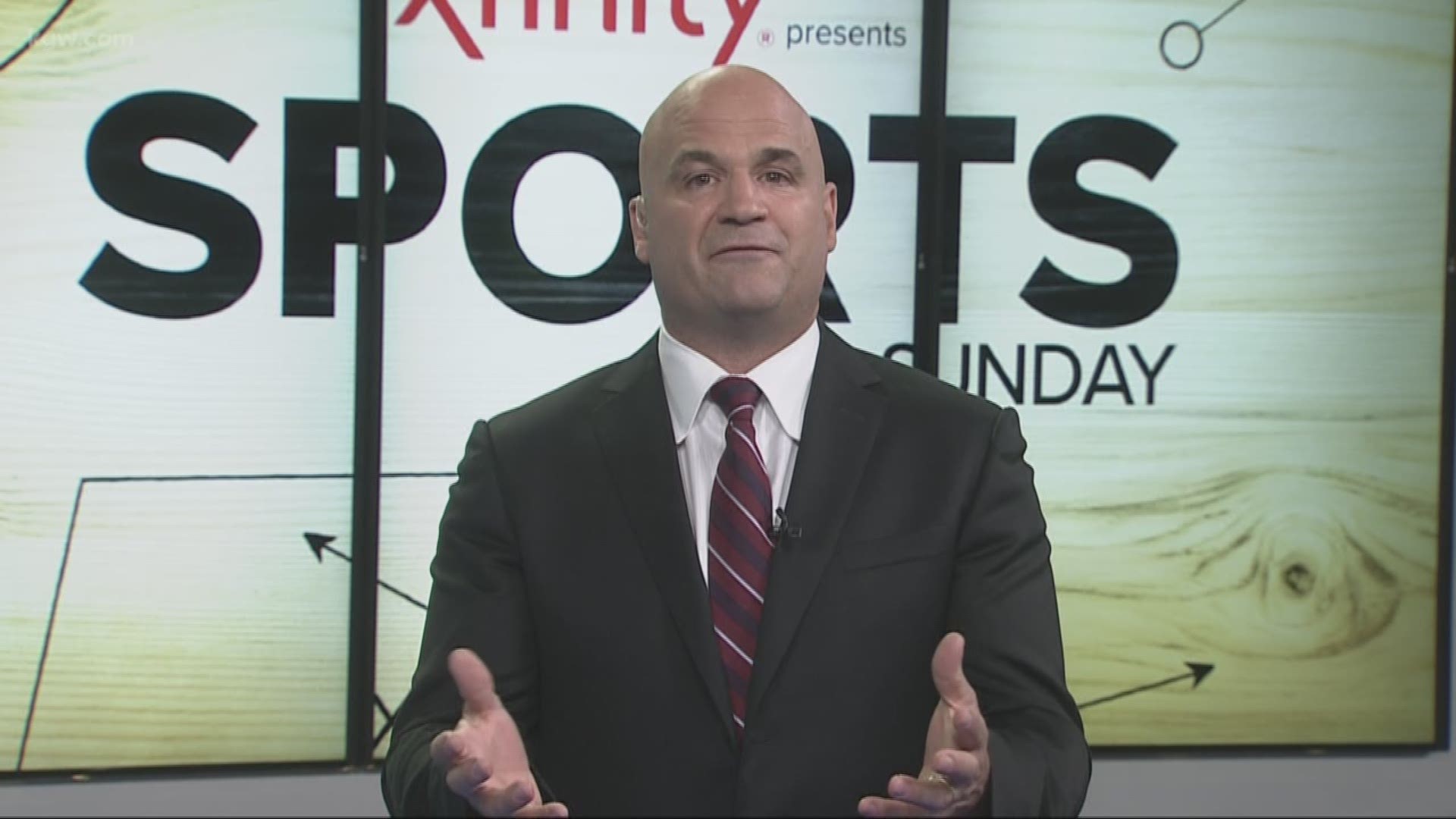Ed Davis is no longer a member of the Portland Trail Blazers after signing a $4.4 million contract with the Brooklyn Nets. Meanwhile, the Blazers are still $9 million over the salary cap, and with looming deals for Jusuf Nurkic and a sizable trade exception that expires at the end of July, the team is likely headed over the luxury tax line of $123.7 million before the summer is over.
So the question is, why would Portland get rid of Davis if they are already headed toward the luxury tax?
Damian Lillard made headlines this past season when he requested a meeting with Portland owner Paul Allen to talk about the direction of the team, and for good reason. Olshey’s tenure at the helm as been a mixed bag, and the Blazers haven’t yet solidified their position in the tier below Houston and Golden State in the West. There is also some doubt externally whether the Lillard-CJ McCollum pairing can work long-term, but the elephant in the room is that salary tax line — threatened each offseason by the contracts of Evan Turner, Meyers Leonard, and to a lesser extent, Moe Harkless.
All three were given massive new deals in the summer of 2016 — along with the departed Allen Crabbe — totaling nearly $35 million per season. None have played up to their potential (although Harkless has in spurts) and the culmination of that summer was a sweep by the New Orleans Pelicans in the first round of the playoffs this year.
All of this is to say that Portland has pressure to succeed during Lillard’s prime, and not necessarily against the Golden States and Houstons of the world. The rest of the Western Conference keeps getting better — LeBron James is now with the Lakers — and free agent spending has apparently not been limited by the worry that battling the Warriors is all but hopeless.
Blazers general manager Neil Olshey has already spent himself into a hole, and the likes of Turner and Leonard are sunk costs. The only counteraction of which is to continue to make smart basketball decisions, with luxury tax payment concern coming secondary.
Spend money effectively in the future because you can’t change the past.
That brings us back to the question of Davis, whose contract was something at first glance that the Blazers could have easily swallowed. But if we consider the absence of a Davis contract as an indication of Olshey’s intentions, it might give us a better look at where Portland is going.
Some quick back-of-napkin math puts the Trail Blazers at around $121 million salary figure after an estimated $12 million Nurkic RFA match and Nik Stauskas’ minimum salary contract. That keeps Portland under the 2018-19 salary tax line of $123.7 million. Rotationally, this roster would be extremely soft up front, but it would avoid penalties.
But let’s say we assume a scenario where Olshey uses both the full $13 million trade exception from the Crabbe swap and his $5.3 million taxpayer mid-level exception. In that case, the cost of Davis’ contract becomes exorbitant. Portland’s salary figure jumps to around $139.2 million before factoring $4.4 million Davis earned from Brooklyn. Thanks to the graduated penalties of the luxury tax, Portland would incur about $30 million in tax.
After adding Davis into the mix — and crossing another graduated tax threshold — Portland would pay a whopping $46.25 million in tax.
Put it this way: after Nurkic, the taxpayer exception, and the Crabbe trade exception, you could account signing Davis for one season at a total cost of $20 million for one year. It doesn’t work that way, of course — salary is cumulative and luxury tax isn’t tied to one specific player — but the Blazers might have seen Davis’ contract this way.
Since the front office in Portland is notoriously tight-lipped (not to mention defensive) we can only speculate about the direction the Blazers are planning to take. Lillard and McCollum quickly voiced their displeasure with the decision. Portland has given up rotational stability as well as significant cultural favor by not re-signing Davis, a fan favorite. In doing so, Olshey has perhaps tipped his hand, or created an expectation that he is going to use those exceptions and the matching of a Nurkic RFA contract to bolster the team while reducing or eliminating their luxury tax bill.
Of course, the gambit with this strategy is that Olshey must now act, and he can’t miss. Failing to find a suitor for that trade exception, or falling through on one of these other proposed ways to strengthen the roster would be a dramatic failure in the face of losing Davis so cheaply to the Nets. That is a big ask considering Olshey doesn’t have the best free agent track record outside of Al-Farouq Aminu, and just how important Davis was to the team.
The Blazers have famously struck out on big name free agents, and during Olshey’s time with the team some of the rumored targets — the Dwight Howards and your Pau Gasols of the world — have seemed like odd fits.
The Blazers are a good team who caught a bad break during the playoffs last year. They will still be competitive and fun to watch over the course of Lillard and McCollum’s careers, and contention for a championship during the era of the Warriors is going to be hard to obtain. But staying competitive while the rest of the West adds stars means Portland and Olshey can’t sit tight.
Passing on Davis perhaps signals that Neil Olshey is ready to take yet another big swing. Whether he makes contact or strikes out like he did in the summer of 2016 is yet to be seen.

